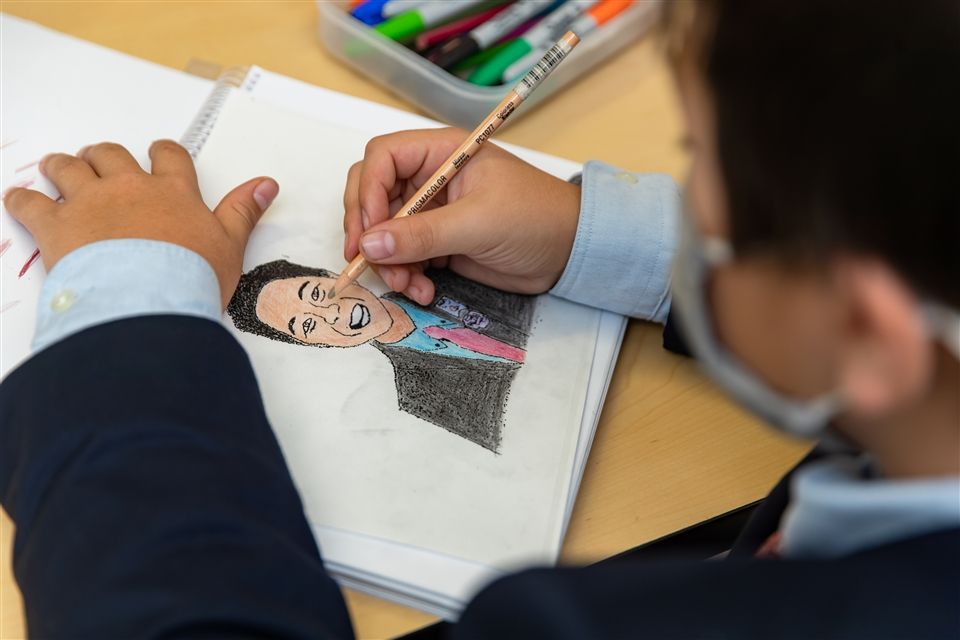Fay Magazine: Summer 2021

Silver Linings: Lessons from a Pandemic Year
While the 2020-21 school year challenged us all to be more flexible, it required Fay faculty to redesign curricular work and rethink how they teach—sometimes at a moment's notice!
While this year challenged us all to be more flexible, it required Fay faculty to redesign curricular work and rethink how they teach—sometimes at a moment's notice! However, change fosters creativity, and our faculty rose to the occasion as they incorporated new technologies, ideas, and strategies into their daily teaching routines. We asked some of our faculty to share the silver linings that they found in this pandemic year.
Lara Gleason, Sixth Grade Reading and Writing
“The student speeches were a real silver lining. Even though the students were not able to present their speeches in the theater, we were able to livestream their presentations from the classroom. As a result, many family members from all over the world could view the sixth graders’ speeches. In a typical year, relatives from far away are not able to see the speeches in person, so that was really special.”
Janet Drake, Upper School Math
“Pre-pandemic, I had occasionally been making videos to explain a concept for my students with an iPad and a stylus. When we found out that we would be going fully remote last spring, I got excited because these teaching ideas that I had been nibbling at were now crucial. Today in my class, I use an iPad, an Apple Pencil, Zoom, and Airtame (a wireless presentation platform). I walk into my class with a Powerpoint ready on my tablet, and my students log in to Zoom. I share my tablet with the students at home who are live streaming while I am Airtaming it to a screen in the classroom. This means that my livestreaming students are getting the same lesson as the students who are in person. Zoom has also prompted my students to start talking more! When you are in a classroom you can hide in the back, but on Zoom everyone is in the front row— so they all have to participate.”
Anne Canada, Kindergarten
“We’re used to working side-by-side with the children, so this year we literally had to take a step back and rethink how we teach. Because we couldn’t show everything, we found that our words mattered more than ever. They say that communication is measured more by the listener’s ears than the speaker’s mouth, and we tried to keep that in mind. From a social-emotional perspective, we had to be explicit about teaching some of those skills as well as a vocabulary that is new for the children. Every morning, the children say, “I feel happy because...” or “I feel tired because...” and they have become more fluid and comfortable acknowledging that part of themselves.”
Jane McGinty, Lower School Art
“The pandemic restrictions forced me to rethink many of the student projects, and the biggest silver lining was implementing sketchbooks. I had been wanting to do sketchbooks for a long time, so it was exciting to get them this year. The students love having them. When they mess up, they can just turn the page and make improvements. If they fill up their sketchbook, I’ll give them another one! I like that they can turn back and see their effort and progress throughout the year. In the past, if students made a mistake, they would crumple it up and toss it, but now they can see their progress from start to finish. The sketchbooks are a record of artistic growth.”
Lloyd Dugger, Upper School Music
“The music faculty made the difficult decision over the summer to not have the students play music or sing this year, and we knew that without performing arts we would have to reinvent what we do in music class. We planned a year-long unit that encouraged students to listen to music critically, observe, reflect, and discover. We started the year by listening and analyzing music and designing listening rubrics. Students enjoyed sharing the music that they love, and we got to learn about our students through the songs they chose. Then, students researched religious music from around the world, learning a lot about different cultures in the process. Next, we dove into digital music creation using a digital audio workstation called Band- lab, and students composed simple songs using pre-installed beats and loops. This spring, we explored American protest music from the Revolutionary War to the current day. Throughout history, cultural upheaval has inspired artists to set their perspectives and experiences to music. Studying these musical movements helps students make sense of current events and their place in history.”






